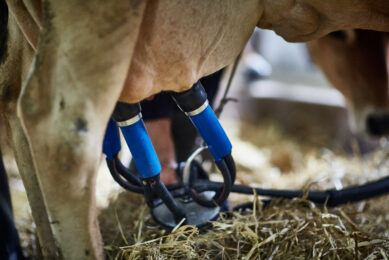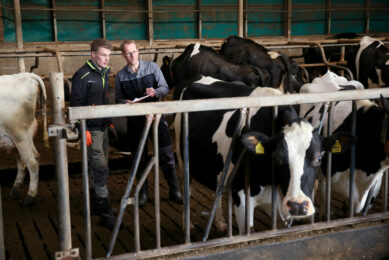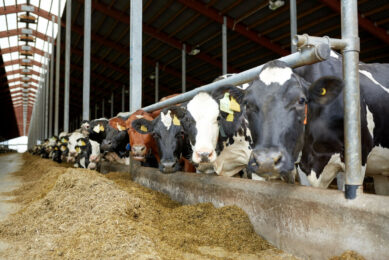Dairy farmer trapped in Ukraine forced to slaughter cows
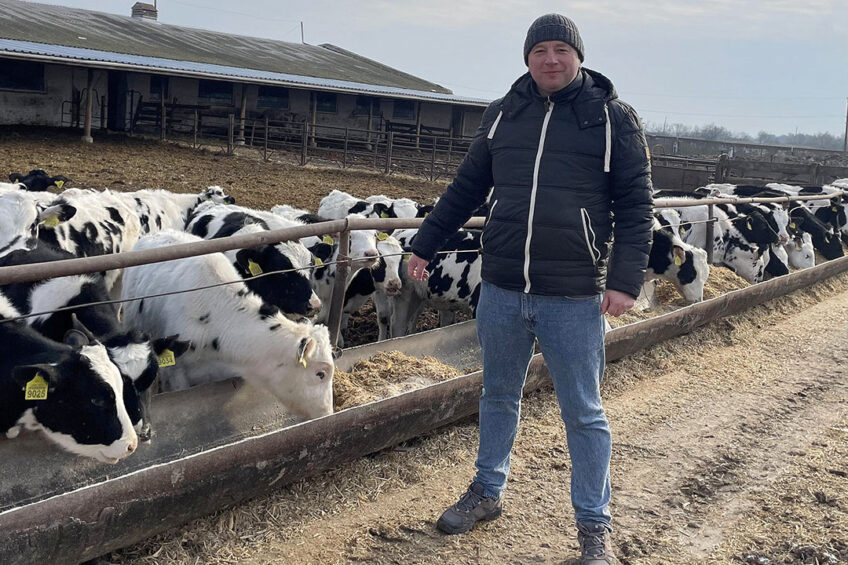
Russian soldiers have set up a base on a dairy farm in Ukraine taking over a farm office, 2 cars and food supplies.
While the soldiers remain polite, farmer Andrii Pastushenko, 39, says his staff are working in fear but continue to do their jobs.
Pastushenko feels trapped on his farm near Kherson and is slaughtering his own cows so that his family, his staff and local villagers have something to eat. They are also turning his grain supply into porridge and the cows’ milk into other dairy products as extra food.
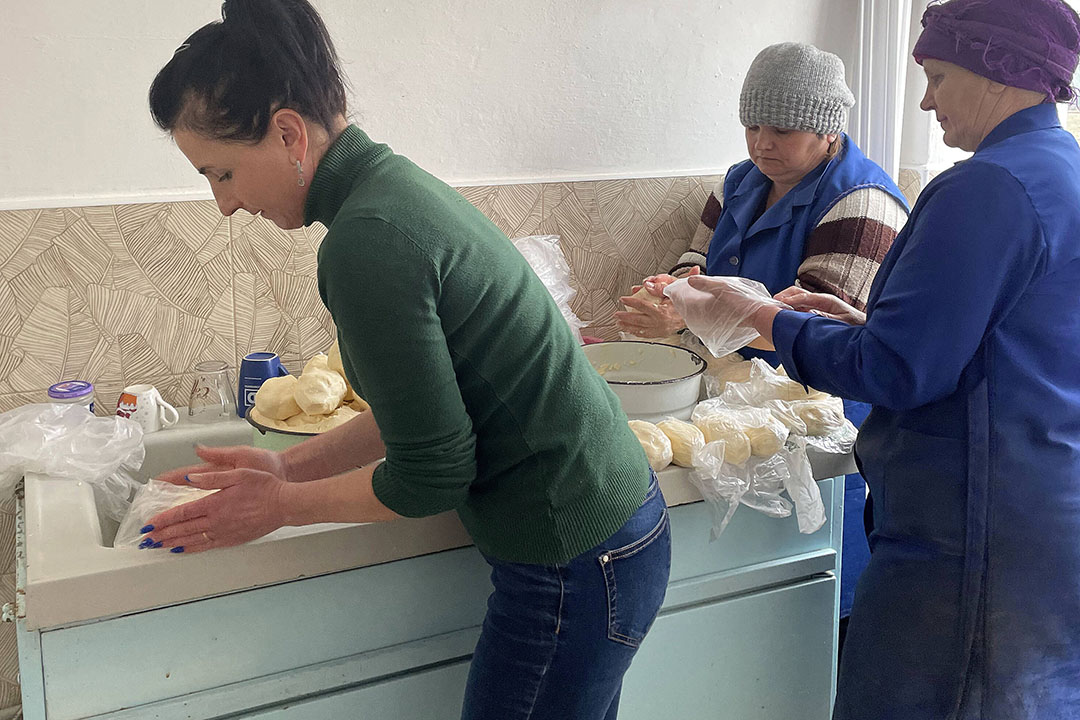
Russian soldiers
Russian soldiers took control of Kherson, in the south of Ukraine, over a week ago but brave residents have continued to protest the occupation by charging and chanting at the soldiers.
Pastushenko’s farm is only 20km south of Kherson, from where he already can see the smoke from bombs and destroyed vehicles bellowing from the city.
“The Russian soldiers arrived on my farm yesterday,” says Pastushenko. “Ten of them are here during the day but more arrive at night. They took 2 cars from my guards and some food. They remain polite but don’t say very much. The Ukraine army know they are here.”
Pastushenko is with his 15 year-old-son and their staff. His wife and other young son fled to their home town, Zhytomyr, in the northwest of the country, 575km from Kherson.
If Pastushenko was to leave, he knows the Russians and the villagers would slaughter all his animals to get food.
Pastushenko is a former university lecturer that taught the German language and started working at the farm company, Dnipro Ltd, as an interpreter before becoming a director.
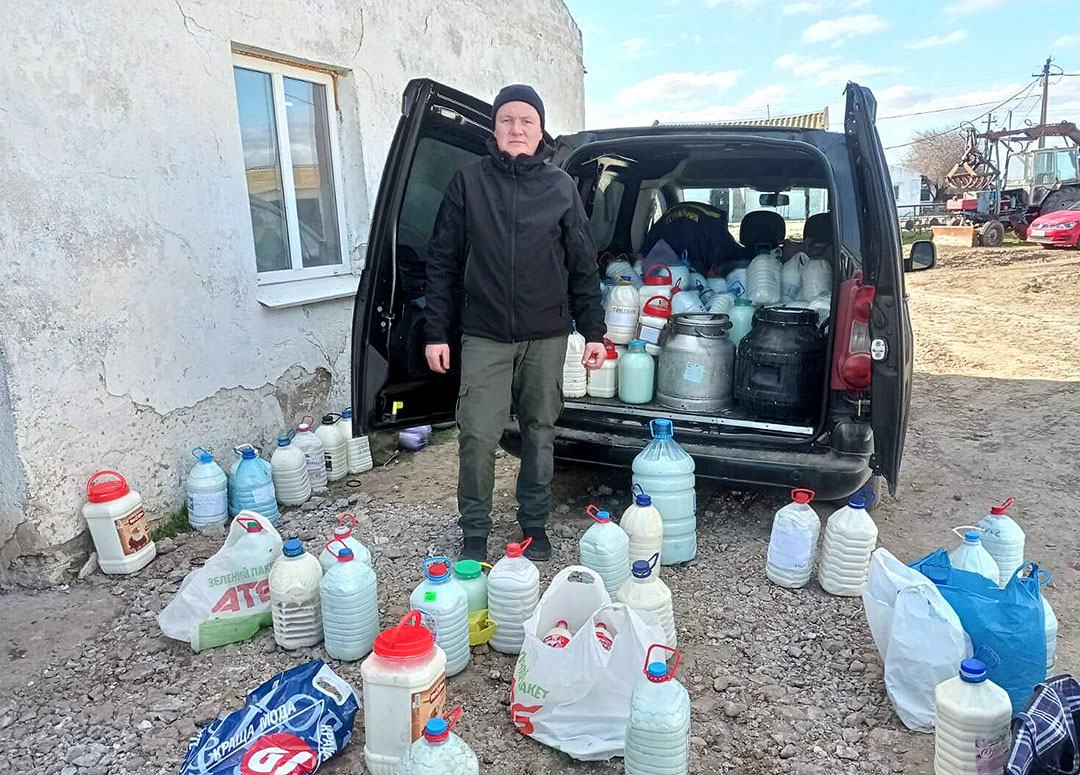
At the dairy farm
He says: “Back in 2008, a few German investors bought the farm out of bankruptcy and I acted as their interpreter. A few months later I became a director of the farm myself. I have a wife and 2 sons. The older son is 15 and studies at the agrarian lyceum in Uman, central Ukraine. He had a vacation before the war started and came to stay at my place in the south. Now it’s impossible to drive away from here. My wife, Liudmyla, and younger son, Matvii, 9, are in Zhytomyr, just 100km from Kyiv. Now I’m trying to evacuate to Germany,” he states.
The farm covers 1,500 hectares of arable land, including 500 hectares of irrigated land. The farm runs 350 Holstein Friesian cows and 400 offspring.
“Before the war started our cows were giving over 10 tonnes of milk per day, or 31.5 litres per cow per day,” adds Pastushenko. “Now we have had to cut their feed as it is running out. We only feed corn silage and alfalfa to the cows and the milk produced has dropped to around 6 tonnes per day.”
We only have 1 month’s supply of diesel left and we know the Russians are looking for diesel.
Feed rations and milk production
During the winter the animals are kept in the barn, but from April to November they stay in the open yards. Pastushenko grows corn silage, alfalfa hay, rye silage, corn and barley to feed his animals and has to buy in rapeseed meal, soybean meal, sunflower meal, spent grains, urea, sugar, and minerals to complete the ration.
However, his feed stocks are running low and Pastushenko is worried the staff won’t be able to get into the fields to prepare for this year’s crop and grass harvests.
He states: “We have about 70 workers. Right now everyone stays on the farm and keeps working. The cows are milked twice per day and we continue to pay our workers’ wages. Before the war our milk was sold to the French dairy processor, Lactalis, in Mykolaiv and we received 45 euro cents per litre payment price.”
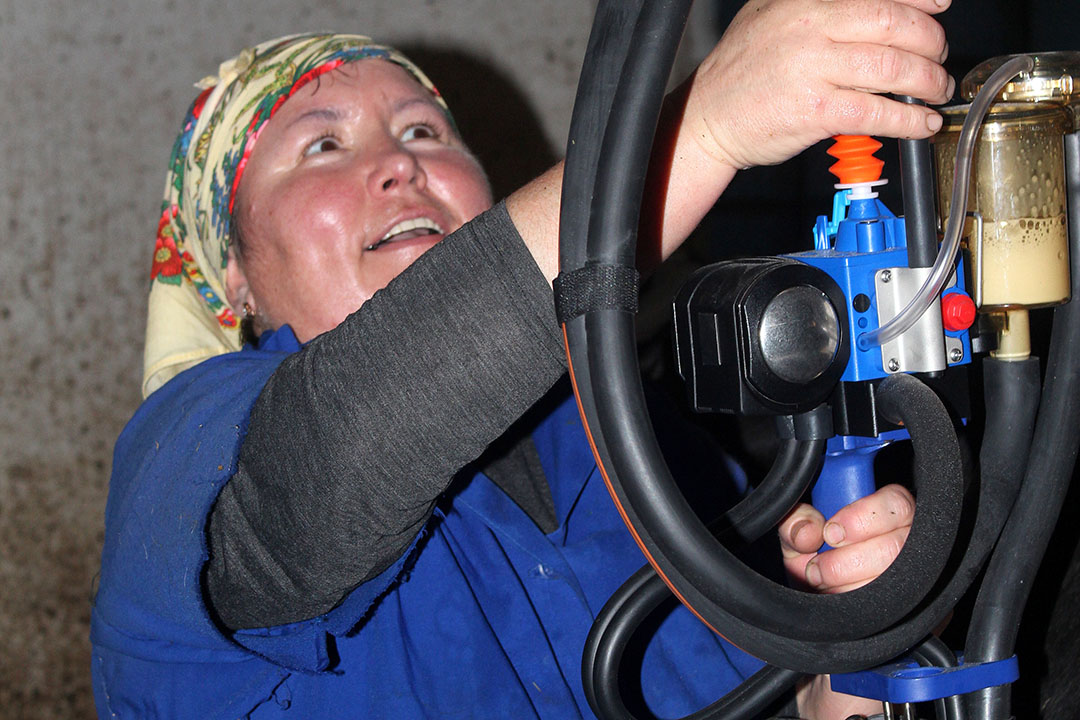
Pastushenko continued to say that in the first 5 days of the war, a milk truck from Kherson picked up 4 tonnes of milk from the farm and delivered it to all the city’s hospitals before distributing the leftovers to the local people.
“Since 28 February, Kherson has been occupied by the Russians and surrounded, therefore no cars are allowed in or out. In the first 10 days we gave away milk worth €50,000 . Now we are producing our own butter, quark, and cream in the barn and crush our barley supply to make porridge. We need food as it’s impossible to go out and buy.“Now we have someone in every village who comes to the farm and picks up milk and food then distributes it, with the help of the churches,” he says.
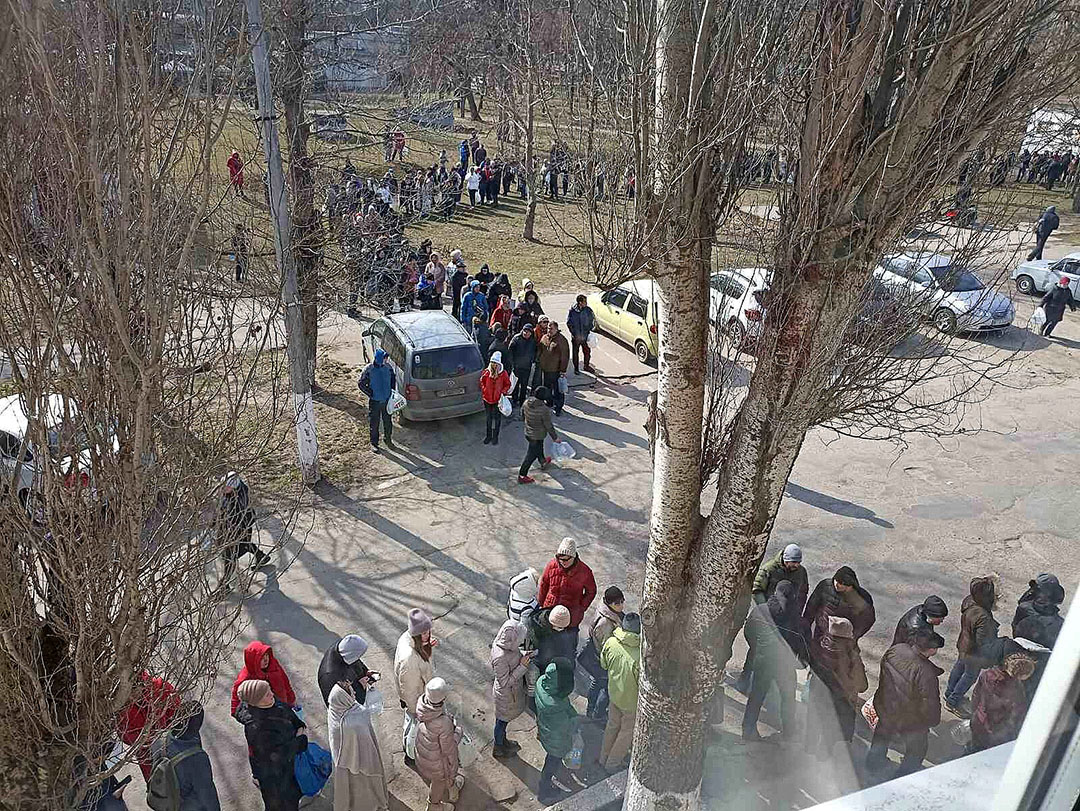
Pastushenko assumes the Russian soldiers will stay on his farm for quite some time, but for now he has to keep the farm going. “We have our own fodder until harvest, but we don’t know if we will have a harvest. We will need to harvest silage in June for the cows to eat next winter.
Before the war all areas were fertilised with nitrogen and around 50 hectares of lucerne were drilled. We managed to drill 90 hectares of spring barley during the war. We only have 1 month’s supply of diesel left and we know the Russians are looking for diesel. Seeds of corn and sunflower were paid for in the fall should have already been delivered but they have not arrived.”
Pastushenko says the war must end soon but he isn’t very hopeful. “Russian civilians don’t understand what’s going on here. Everything they see on TV is lies. Their propaganda tells them everyone is bad, that there are enemies everywhere and only the Russians are good and are kissed by God.”
I can’t leave. I can’t take my son away. We are trapped here.
“Negative information about Ukraine has been spread in Russia since 2004, when I was still watching Russian channels. The hatred arose and it took 10 years to prepare when Russia attacked us. We are not nationalists or fascists. Here in the south, the majority of the people used to speak Russian, but less and less since 2014. Now they try to speak Ukrainian as a matter of principle,” said Pastushenko.
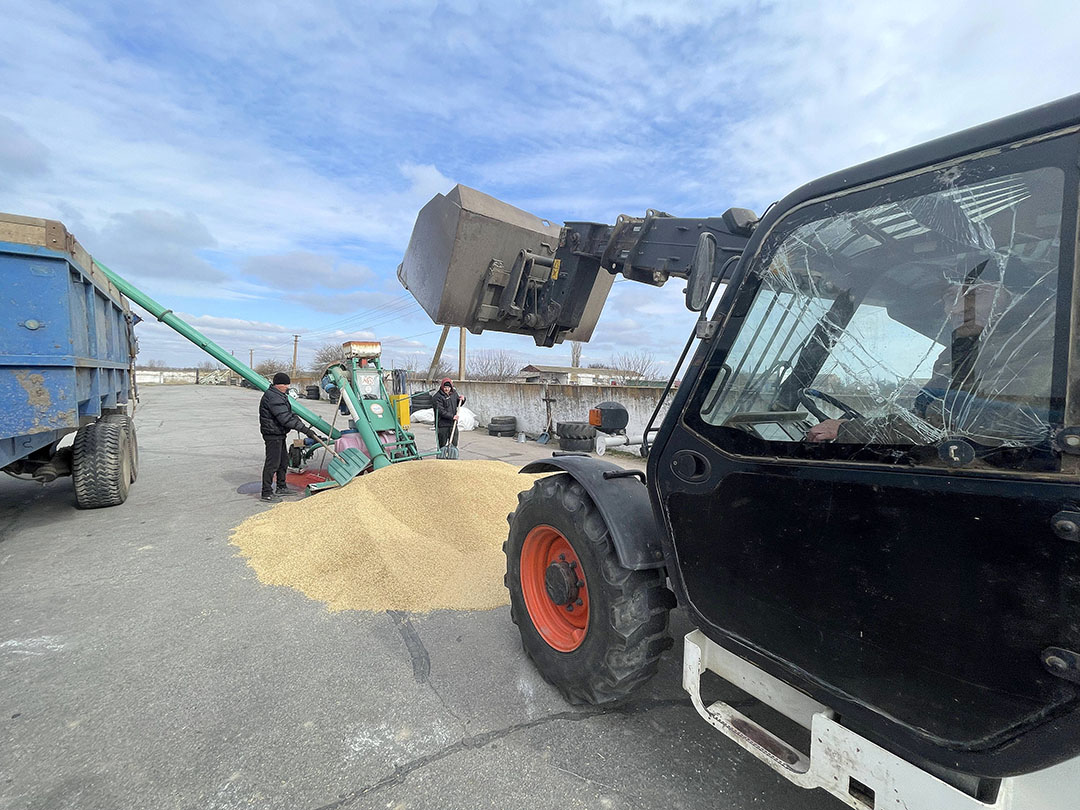
“I can’t leave. I can’t take my son away. We are trapped here. If I leave, the hungry people will steal and slaughter the cows and other animals. We do that already, but only 1 cow every 2 days because we need meat for my employees and the rest of us,” he said.
In the future, Pastushenko says if the Russians stay in his region and create a people’s republic like in Donetsk or Luhansk, he will leave.
“I will leave my house and drive away. I will never live and work under occupiers,” he states.
Join 13,000+ subscribers
Subscribe to our newsletter to stay updated about all the need-to-know content in the dairy sector, two times a week.



